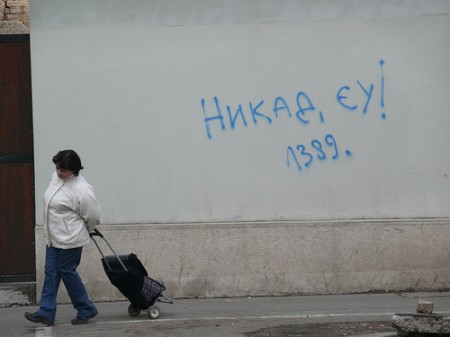
The timing could not have been any better. A few days from now, the chief prosecutor to the International Criminal Tribunal for the Former Yugoslavia (ICTY) will release a report which was expected to paint a damning picture of Serbia’s co-operation with the ICTY, thereby destroying Serbia’s chance of getting EU candidacy status this year. Considering today’s historic arrest of war criminal Ratko Mladic and his expected extradition to The Hague, some people at the ICTY will now have to work overtime to correct the draft report, .
Serbia’s move towards EU accession began back in 2008, with presidential elections and a parliamentary vote both demonstrating the appeal of the EU perspective to Serbia’s electorate. Even after Kosovo unilaterally declared its independence, a majority of Serbians continued to resist nationalistic demagogy. Of course the nationalist ideology had not disappeared, but its political significance started to diminish.
Serbia officially applied for EU membership in December 2009, after seeking to secure the broadest possible support among member states. In October last year, the EU member states referred Serbia’s application for membership in the EU to the European Commission, while reiterating that further steps toward membership would depend on Serbia’s “full co-operation” with the ICTY. The Netherlands in particular took a tough stance, reiterating that their consent was dependent on the arrest of General Mladic and Goran Hadzic.
